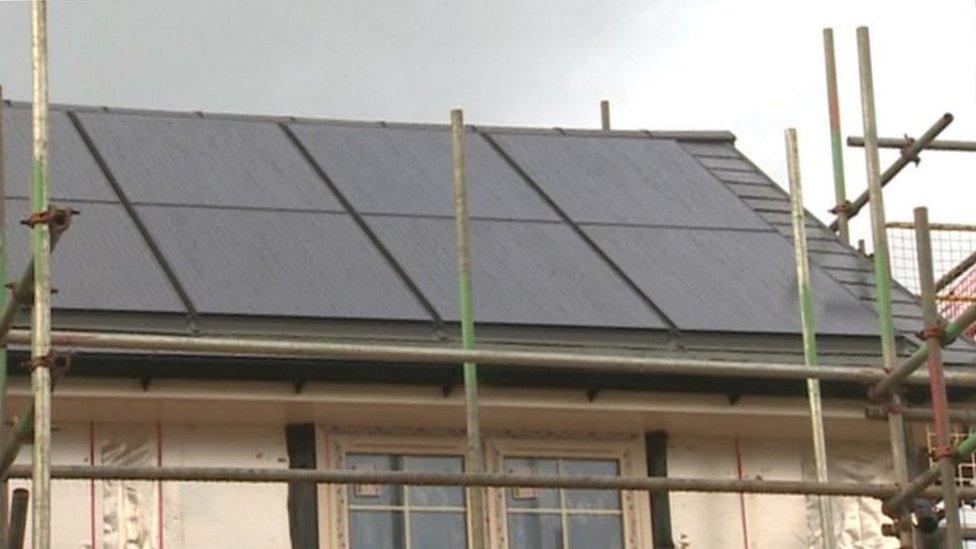Swansea Bay City Region plan for 'mini power station' homes
- Published
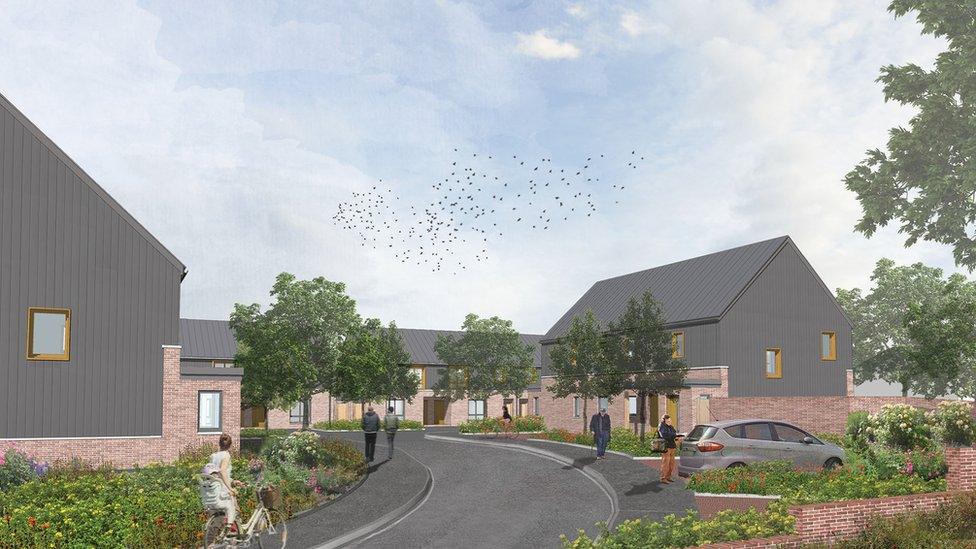
The approach was adopted on 16 new homes in Neath
More than 10,000 homes could become "mini power stations", fitted with green technology such as solar panels, heat pumps and Tesla batteries.
Plans for the Swansea Bay City Region, external would see 3,300 new properties built and 7,000 retrofitted with equipment.
The scheme, where homes generate their own energy and also send surplus to the National Grid is being piloted in Neath on a small scale.
Ministers in Cardiff Bay and London will need to approve it.
The Swansea Bay City Region is made up of the four west Wales local authorities of Swansea, Neath Port Talbot, Carmarthenshire and Pembrokeshire, with nine projects in total being taken forward as part of a £1.3bn city deal, external.
A joint committee approved the homes as power stations plan on Thursday and it has now been given the thumbs up by all four councils, according to the Local Democracy Reporting Service.
A pilot scheme in Neath has used technology developed at Swansea University while a retrofit scheme at Craigcefnparc in the Swansea Valley has seen energy bills plummet from £71-a-week to £3.
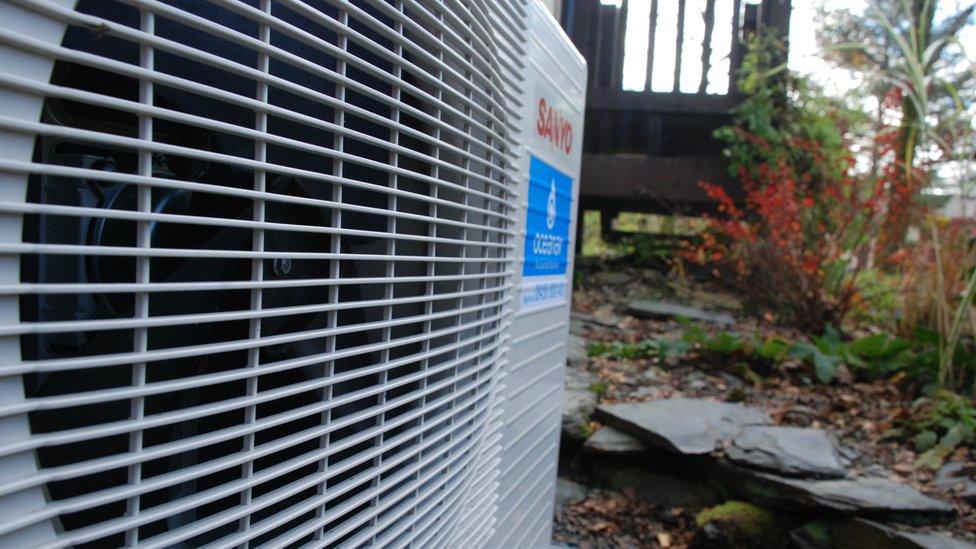
Heat pumps could be crucial to helping reduce energy costs in buildings
Under proposals, all properties would not be expected to export surplus to the National Grid all the time, but would be creating a large part of their energy themselves.
Private sector involvement is seen as crucial and the group's chairman Ed Tomp described it as a "very ambitious and very innovative project".
The idea is to begin in the public sector and then roll it out to social housing providers and then privately-owned properties.
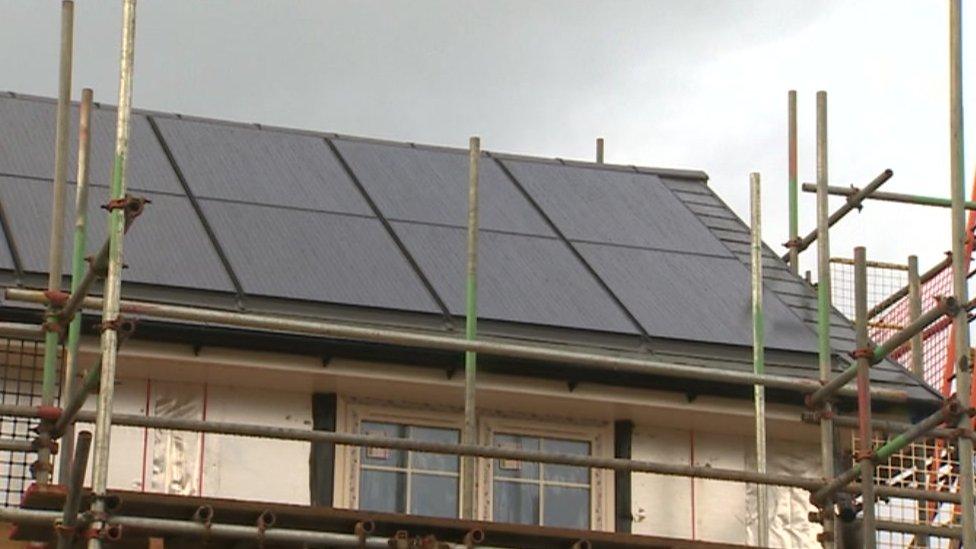
Solar panels harness the energy of the sun to produce energy
It costs between £25,000 and £30,000 to retrofit a house, with a less comprehensive option estimated at £10,000.
However, retrofitting those at Craigcefnparc would cost about £55,000 per property.
The Welsh and UK governments are expected to provide £15m towards the £505m project, with £376m coming from the private sector through new-build and retrofit costs, and borrowing from social housing providers.
Levering money from existing and new energy-efficiency programmes in Wales would bring in the remaining £114m.
- Published9 August 2017

- Published6 September 2016
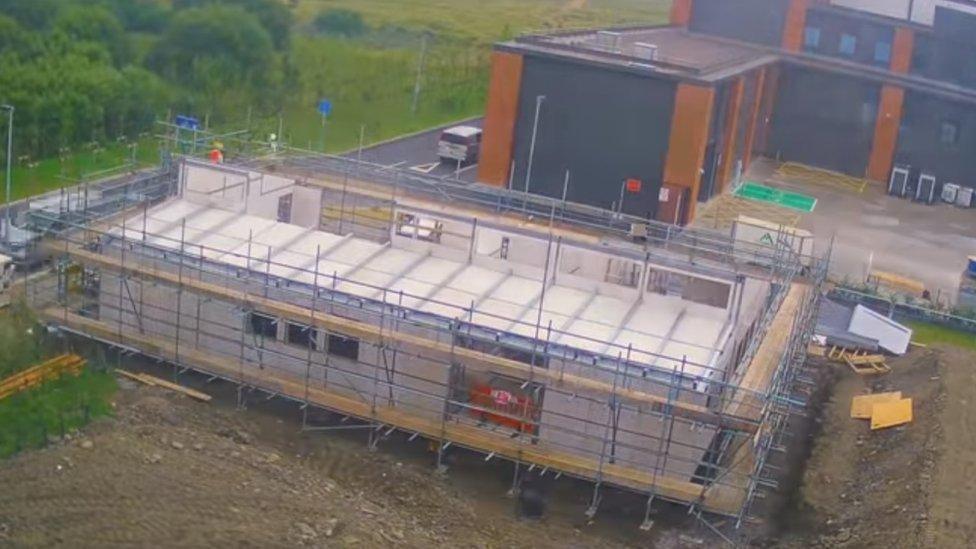
- Published20 January 2020
